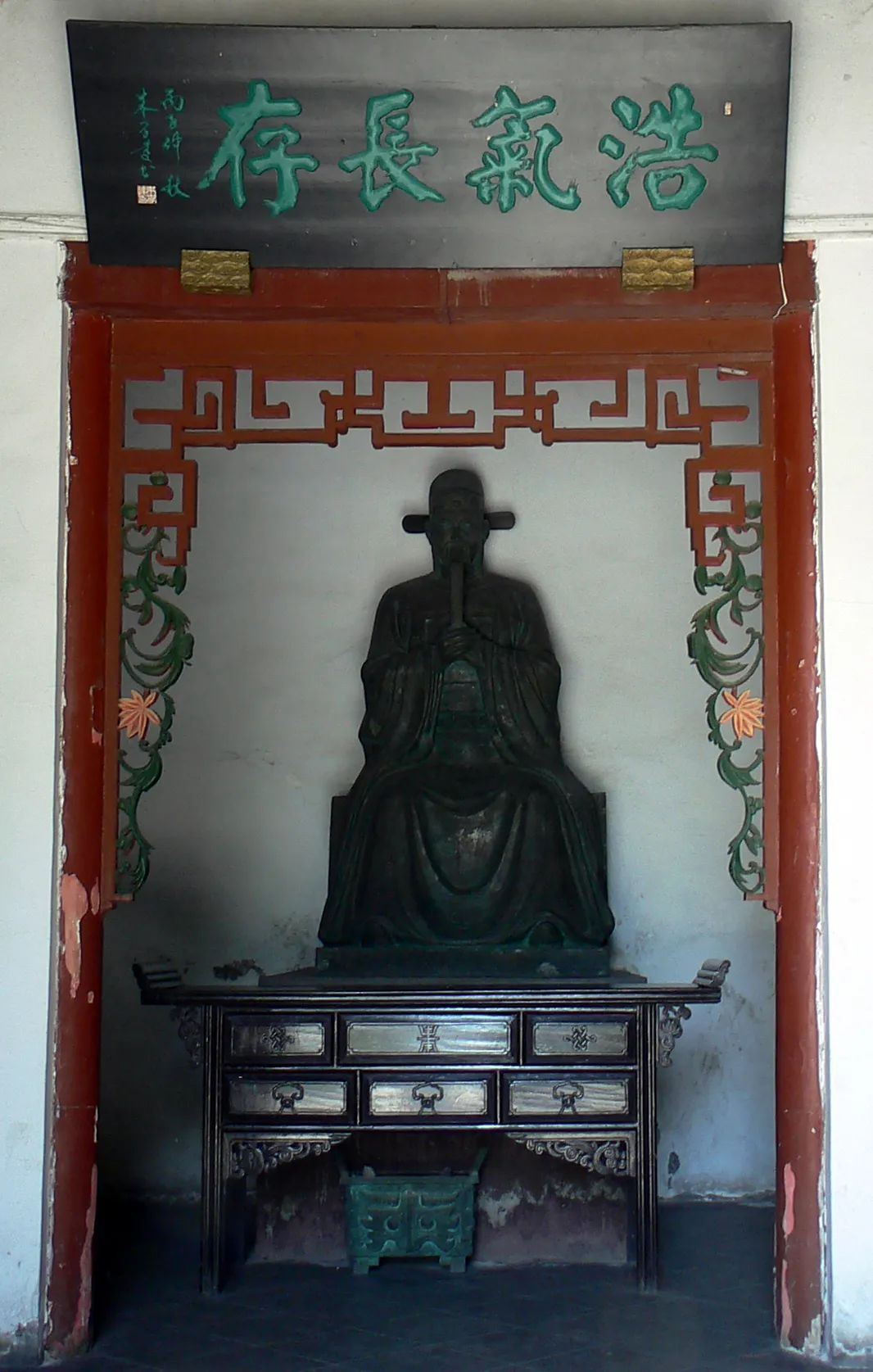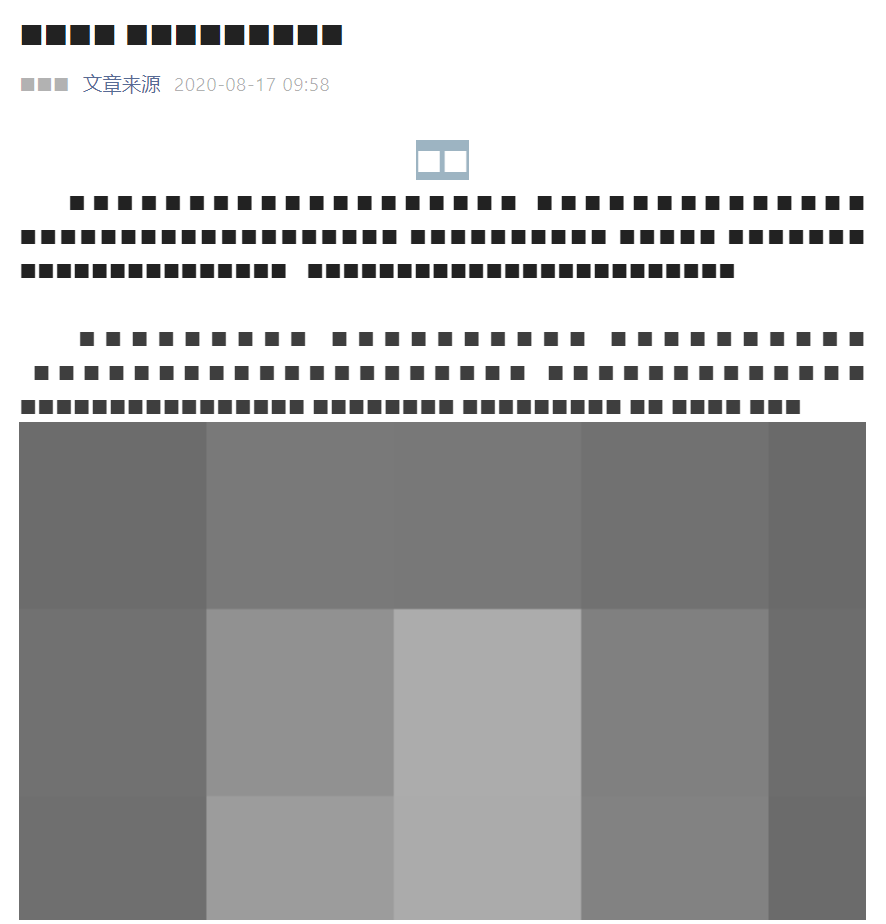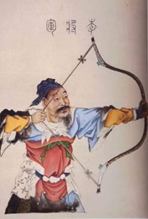A fire reflects the pre-modern, modern and post-modern world
Yesterday's fire truck did not extinguish the fire, but it did extinguish the heat of the World Cup. Although the short videos are still full of World Cup-related entertainment topics, relatively private platforms such as Moments have been dominated by public opinion. It is worth noting that in the expression of public opinion, there are three distinct levels, which I call pre-modern, modern and post-modern.
Someone dug up "Selected Works of Mao", the title is "Let people speak, the sky will not fall"; someone also dug up Comrade Zhongxun's speech: "Let the people speak". This kind of thinking, I call it pre-modern, after all, this trick has indeed been used in history, and it belongs to traditional wisdom. During the Battle of Jingnan, Zhu Di was stubbornly resisted by government forces in Jinan City. When Zhu Di decided to attack the city with cannons, Tie Xuan, who was defending the city, ordered the soldiers to write "God Emperor God Card" on the wooden sign and hang it on the top of the city.
However, a year later, Zhu Di finally captured Tie Xuan, cut him into pieces, and put him in a frying pan . Although these two punishments are so cruel that people mostly use them as exaggerated curses, they are tortures that Tie Xuan experienced personally. What is even more ironic is that even though people rehabilitated Tie Xuan a hundred years later, and "Tie Gong Temples" were built in various places to commemorate his integrity, Zhu Di, who has become the Emperor of Yongle, still has a hundred times as many fans as Tie Xuan. People worship the fire-setters rather than the fire -fighters, and Lu Xun believed it to be true.

As far as its rationale is concerned, Tie Xuan's strategy is also doomed to a sad ending. He justifies his claim by appealing to a higher, self-evident authority. However, the original contradiction that motivates the appeal is actually contained in the internal logic of appealing to authority. Shouting to Lord Qingtian can only bring about the next cycle of chaos and balance. In the pre-modern context, Zhu Di does not need to defend himself. As long as he becomes Emperor Yongle, there will be no shortage of lawyers and advocates around him.
Others, mostly media people with delicate writing style, try their best to write criticism and dissatisfaction with the whole world in the cracks. In recent years, most of the popular articles about group incidents fall into this category, such as this time "The road is open, they don't run", "Every bad thing you can think of will happen", and you can get a glimpse of the samadhi from the title. These articles I call modernist. Since the Renaissance, the pursuit of modernity is not only reinforced concrete, potatoes and beef, but also individual liberation, rationalism, and the pursuit of abstract value.
The characteristic of modernist public opinion is that no matter how euphemistic their words are, they all contain firm beliefs in values such as truth, goodness and beauty. When these beliefs are torn apart again and again, what the author and readers mourn is not the absence of the personified Lord Qingtian, but the collapse of some more abstract values. Some articles are as passionate as they are polite, while others are more indignant, resorting to more intense written or practical protests. The two seem to have completely different emotions, but they are consistent in terms of their belief and pursuit of abstract values. It's for modernism.
But what I want to focus on is the so-called postmodern public opinion. Among the various popular articles on the screen today, one is quite eye-catching: "Good good good good good good good good good good good good good good good good good good good good good good good good good good good good good good good good good good good good good good good good good good good good good good good good good good good good good good good good good good! ! "Click in and see that the whole article is a good word, and even carefully divided into sections and accompanied by illustrations. There is still a big "good" in the picture.
I immediately sighed, the author has played the traffic thoroughly, this is really not a blockbuster that ordinary people can think of, but when you look at it, you think it is very popular. Form is higher than content, form dissolves content, and form is content. Too postmodern.
The interaction in the comment area of this article pushed this deconstruction to a climax.
Beijing Netizen: Yes, yes, yes, yes, yes, yes...
Netizen from Henan: Zhongzhongzhongzhongzhongzhongzhongzhong...
Shanghai Netizen: From one victory to another victory to another victory to another victory...
If I were asked to choose a contemporary article that reflected the trend of public opinion in Chinese society over the years, I would have to choose it. Everything is in silence, and it seems that thousands of words can be combined into one word, okay.
What's more interesting is that this article was written on January 24, 2022. I don't know what unexpected event inspired the author. Ten months later, it once again became a hot item that netizens rushed to repost. This is not only a trait that we media, but also the dream of the literary world: the work is written with a timeless era. It is said that Hemingway wrote a touching novel with only six words, but in front of this postmodern narrative of one Chinese character, Hemingway had to go back a little.
These days, overseas attention is focused on the World Cup in Qatar because of LGBT issues into the whirlpool of public opinion, some people joked that this is "post-modern meets pre-modern". Yes, most countries are either experiencing the pangs of secularization from pre-modern to modern, or enduring the spiritual emptiness from the disillusionment of modernity to the nihilization of post-modernity. Like China, there are very few countries that combine pre-modern, modern, and post-modern thinking at the same time without distinction.
The rapid development of the country is not only reflected in the rise of reinforced concrete and adjacent to thatched adobe houses, but also in the juxtaposition of adobe, bricks and steel bars in our way of thinking.
When I wrote these words, the pre-modernism, modernism, and this "Hao Hao Hao Hao Hao" have all been sealed, only Mao Xuan is still there. Silence may defeat the pre-modern prayers and suppress the anger of modernity, but it cannot stop the post-modern people. Being terrified of postmodern jokes is another joke in itself. And netizens quickly iterated the following abstract version. You can't kill a joke.

I feel more and more that I study the modern significance of Ming Dynasty jokes. The preface to the collection of jokes compiled by Feng Menglong, a master of folk literature in the late Ming Dynasty, also has a postmodern flavor when read today.
He wrote in the preface of "The House of Laughter": In ancient times, is it possible to talk, and it is possible to laugh... It is ridiculous to doubt it when you say it, and it is even more ridiculous to believe it when you say it. There is a lot of laughter in the ancient and modern world. If you don’t talk, you won’t be an adult, if you don’t laugh, you won’t talk, and if you don’t laugh, you won’t be a world. He also said in the preface of "Ancient and Modern Laughter": "People's customs are too serious to be so bad... It is better to make fun than to be serious. There is no truth in ancient and modern times. I just laugh."
Such an uninhibited man who laughed at the past and present, but in his later years he threw himself into the army and fought against the Qing Dynasty until his death. If there is any spiritual wealth I have gained from it, it is that I believe more in the power of humor, and in the creativity, hope and dignity of laughter. Laughter is weak and boneless, but indestructible. Girls who can laugh will not be too unlucky, and so are nations who can laugh. Even if it was a wry smile.
Finally, forward this Li Guang, because he is really difficult to block.

Like my work? Don't forget to support and clap, let me know that you are with me on the road of creation. Keep this enthusiasm together!


